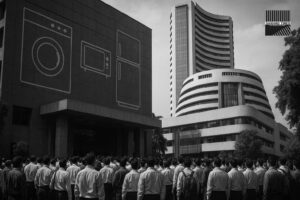Introduction
Hyderabad, one of India’s fastest-growing metropolitan cities, has emerged as the city with the highest incidence of breast cancer in the country, according to recent health data. Doctors and researchers are increasingly linking this surge to urban lifestyle factors such as sedentary habits, late marriages, dietary changes, and rising stress levels.
The findings have sparked concern among healthcare professionals, policymakers, and women’s rights groups, who stress the urgent need for awareness, screening programs, and lifestyle interventions to counter the alarming trend.
The Numbers: Breast Cancer in Hyderabad
- Hyderabad now tops the list of Indian cities in breast cancer prevalence.
- The city records 30–35 cases per 100,000 women annually, higher than the national urban average.
- Over 40% of cases are diagnosed in women below 50 years, breaking the stereotype that breast cancer affects mostly older women.
Doctors warn that the younger demographic shift indicates environmental and lifestyle triggers beyond genetic predisposition.
Why Hyderabad?
1. Urban Lifestyle
Fast-paced urban living has led to:
- Reduced physical activity.
- High consumption of processed foods.
- Longer working hours, affecting hormonal balance.
2. Delayed Motherhood
Increasing trends of late marriages and childbirth impact estrogen exposure, a key factor in breast cancer risk.
3. Stress and Pollution
Chronic stress, combined with rising air pollution in metropolitan cities like Hyderabad, adds to cancer risk factors.
4. Awareness Gap
Despite advanced hospitals, many women delay screenings, often dismissing early symptoms.
Medical Experts Speak
Dr. S. Reddy, oncologist at a leading Hyderabad hospital, notes:
“We are seeing younger women, even those in their 30s, come in with advanced stages of breast cancer. The trend is worrisome, and the need for early detection and awareness cannot be overstated.”
Another oncologist, Dr. Priya Sharma, adds:
“Urban lifestyle choices—lack of exercise, late nights, fast food—are silently contributing. Genetics plays a role, but lifestyle now dominates the risk profile.”
Comparison with Other Cities
While breast cancer rates are rising nationwide, Hyderabad has surged ahead:
- Delhi & Mumbai: High cases but better awareness and screening infrastructure.
- Chennai & Bengaluru: Rising trends, though slightly lower than Hyderabad.
- Tier-2 cities: Lower reported cases, though underreporting and lack of data remain concerns.
Social and Emotional Dimensions
Beyond statistics, breast cancer has a profound impact on families:
- Financial Strain: Advanced treatments can cost lakhs of rupees.
- Social Stigma: Many women hide their diagnosis, fearing societal judgment.
- Mental Health: Depression and anxiety are common among patients and caregivers.
NGOs in Hyderabad are working to break the stigma, offering counseling and support groups.
Screening and Early Detection
Healthcare experts stress that early detection saves lives.
Recommended measures include:
- Monthly self-examination after age 20.
- Clinical breast exams every 3 years (age 20–40).
- Annual mammograms after age 40.
- Genetic testing for high-risk families.
Unfortunately, only a fraction of women in Hyderabad undergo regular screenings.
Government and Policy Response
The Telangana state government has initiated:
- Mobile screening camps in urban slums and rural areas.
- Partnerships with private hospitals for affordable mammograms.
- Awareness campaigns in schools and workplaces.
However, critics argue these initiatives need greater scale and urgency given the rising numbers.
Role of Technology
AI and digital health solutions are emerging as game-changers:
- AI-based mammogram analysis helps detect cancer at earlier stages.
- Telemedicine platforms are connecting women in smaller towns with oncologists.
- Wearable devices track lifestyle patterns, nudging healthier habits.
Hyderabad, as an IT hub, is well-placed to leverage technology in tackling the crisis.
Voices from Survivors
Ritika, a 38-year-old breast cancer survivor from Hyderabad, shares:
“I dismissed a lump thinking it was nothing. By the time I saw a doctor, it was Stage 2. Regular screening could have caught it earlier. Awareness is everything.”
Her testimony underscores the role of education, timely check-ups, and community support.
International Perspective
Globally, breast cancer is the most common cancer among women.
- In the US and Europe, early screening has drastically reduced mortality.
- India, however, continues to face late-stage diagnoses due to lack of awareness.
Hyderabad’s rising numbers serve as a warning for other Indian cities headed in the same direction.
What Can Women Do?
Practical steps for reducing risk:
- Maintain a balanced diet rich in fruits, vegetables, and whole grains.
- Exercise at least 30 minutes a day.
- Limit alcohol and avoid smoking.
- Manage stress with yoga, meditation, or therapy.
- Prioritize regular medical check-ups.
Call to Action
Healthcare professionals emphasize that combating breast cancer requires:
- Government commitment to scale up screening.
- Corporate responsibility to provide health benefits and awareness drives for employees.
- Community support systems for survivors and their families.
As Dr. Reddy puts it:
“Breast cancer is no longer a disease of the old. Hyderabad is proof that our modern lifestyles carry hidden costs. Awareness and action are our best defense.”
Conclusion
Hyderabad’s status as the city with the highest breast cancer cases in India is both alarming and instructive. It reflects the challenges of modern urban life while highlighting the urgent need for awareness, prevention, and accessible healthcare.
If addressed proactively, Hyderabad’s crisis could become a national turning point, galvanizing India to prioritize women’s health in policy, practice, and public dialogue.
#BreastCancerAwareness #HyderabadHealth #WomensHealthIndia #CancerPrevention #UrbanLifestyle #SarhindTimes #HealthCrisis #PinkRibbon #FightBreastCancer #HealthcareIndia




+ There are no comments
Add yours